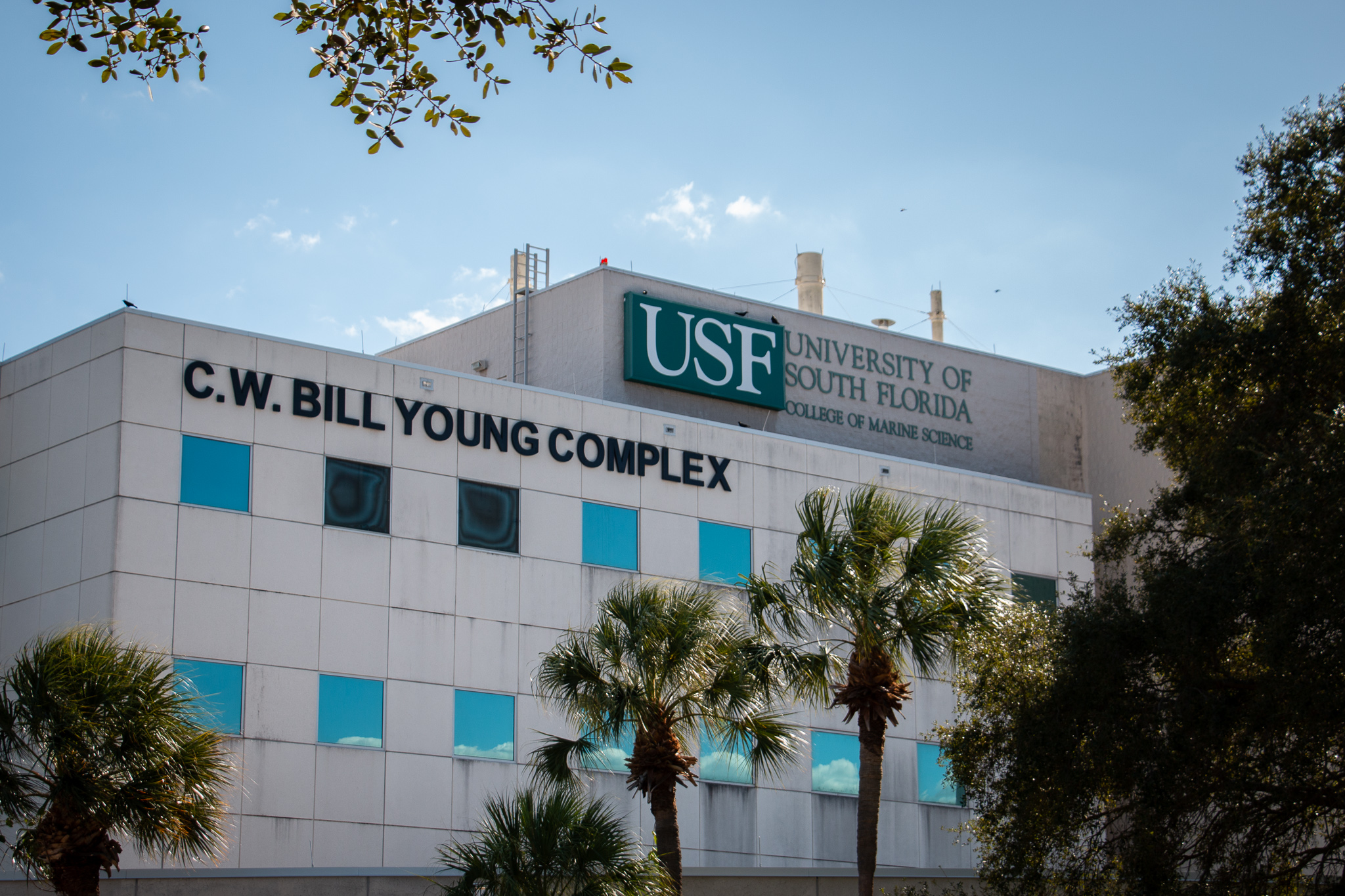Pictured Above: The new Center for Ocean Mapping will be located at the College of Marine Science in St. Petersburg.
Sophie Ojdanic | The Crow’s Nest
USF St. Petersburg campus will soon become home to the Center for Ocean Mapping and Innovative Technologies.
This opportunity was made possible through a $9 million cooperative agreement between the National Oceanic and Atmospheric Administration’s Office of Coast Survey and USF’s College of Marine Science.
“The new cooperative agreement NOAA will result in the development of new and innovative solutions to the problem of assembling a universal map of the world’s oceans,” said Tom Frazer, dean of the College of Marine Science.
According to Frazer, ocean mapping makes navigation through the water safer and more efficient. This is done through charting obstructions and depths in the water. Ocean mapping is also used to protect marine life, allowing resource managers to find and identify different marine habitats.
“An extremely talented team of professionals, led by Dr. Steve Murawski, will design, develop and implement new methods to map vast unexplored areas of our oceans and coastal seas using a combination of surface ships, autonomous vehicles and airborne lasers,” Frazer said.
About a third of the marine science faculty will work directly with the center and opportunities for student research will also become available.
“The Center for Ocean Mapping and Innovative Technologies will leverage our extensive marine engineering expertise and will also use the ships operated by the Florida Institute of Oceanography, which is hosted by USF and housed at the college,” Frazer said.
The College of Marine Science is working to develop an educational module that builds upon the center’s research.
These modules will include courses on hydrography, acoustic bathymetry and sonar interpretation, as well as additional public education and outreach materials.
The College of Marine Science will also be releasing a new podcast series, “The Deep,” sometime next year.
“This new program will be a core facility through which we hope to engage colleagues in other academic units across the university, as well as those in state agencies, other federal institutions and private industry in a coordinated approach to explore the last true frontier on Earth,” Frazer said.



